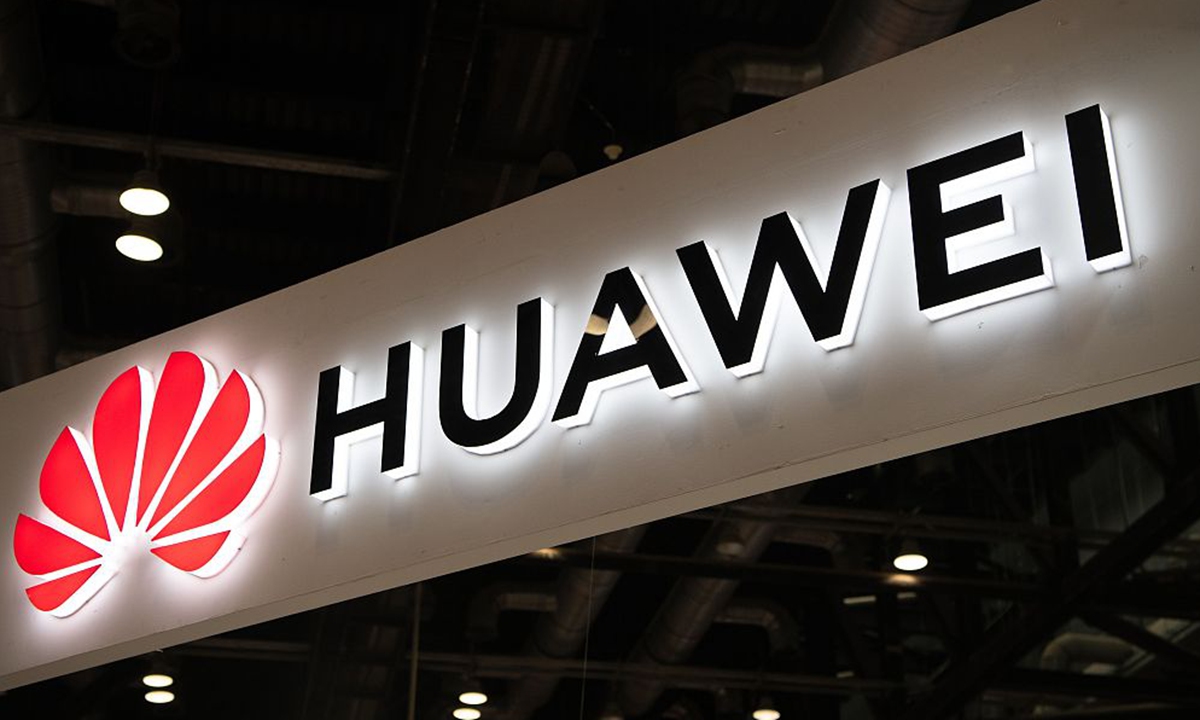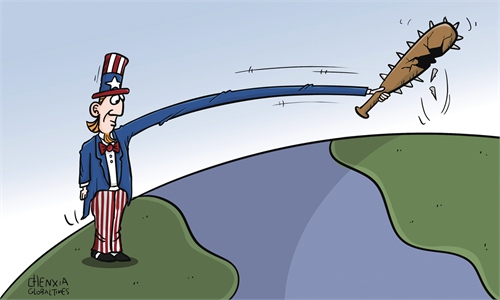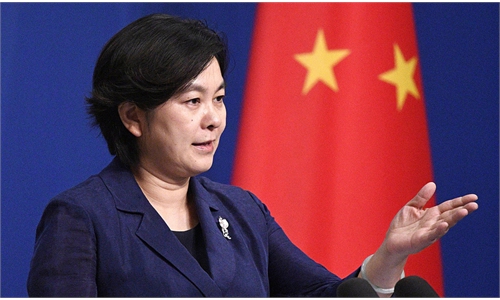COMMENTS / EXPERT ASSESSMENT
Time to call the US out for making Chinese nationals targets of prosecution

Huawei Photo: VCG
Now that Huawei's CFO Meng Wanzhou has returned to China after reaching a deal with the US Justice Department, it is time to reflect about her possible "successors", not in Huawei's boardroom but on the list of targets of America's long arm jurisdiction.
Just days before the US Department of Justice (DOJ) dropped Meng's extradition request allowing her departure from Vancouver, FBI Director Christopher Wray reportedly told a Senate Homeland Security Committee hearing on threats to the US that the bureau opens new probes into China "every 12 hours".
The US has bilateral extradition treaties with about 120 countries. Those treaties allow for the extradition for traditional crimes like fraud, hacking, and money laundering but not for crimes of a political nature, like failure to register as a foreign agent, espionage, or in Meng's case, violations of US sanctions.
The DOJ's China Initiative established in 2018 by the Trump administration has given the FBI and US prosecutors special incentives to pursue cases related to China. To clear the extradition threshold, US authorities often mask political crimes as ordinary by withholding from courts relevant information pertaining to the political context of the case.
In Meng's case, the official charge was bank fraud even though the motivation for the prosecution was political and aimed at sabotaging Huawei's global 5G leadership position.
Had Meng been extradited and faced trial, her fate would have been decided by a jury of 12 from New York who were expected to be impartial. But it is hard to see how, with growing anti-China sentiment in America, such an impartial jury could even be found.
This means that in the era of US-China rivalry every legal case involving China brought before a US court, let alone a high-profile case like Meng's, could be easily turned into a political circus. This is not to say that Chinese citizens should be immune from US legal actions but that countries receiving extradition requests must apply new standards of scrutiny when reviewing extradition cases involving China and the US.
The targeting of foreign citizens by the US government is not always done within the framework of the law.
Recently, an investigative report posted by Yahoo News revealed troubling information about how the CIA planned to kill or kidnap Wikileaks founder Julian Assange whose organization exposed US war crimes in Iraq and Afghanistan as well as other embarrassing details about the workings of the US intelligence community. When the plan was rejected, Assange was charged with hacking into US military databases, an extraditable crime under the US-UK extradition treaty. In January, Assange's extradition was blocked by the British judge but the US government appealed the decision. His case could drag on for years and he might linger in prison.
Time and again the US government has sought to extradite and imprison foreign nationals for political reasons, weaponizing its legal system to advance its geopolitical agenda. Under some extradition agreements the US does not have to provide detailed evidence against the accused. In other words, the court does not need to be sure that the individual could be convicted at the end of a trial.
National courts in such countries must therefore be extra scrupulous and demand a more substantial body of evidence against defendants, especially when it comes to Chinese nationals before they rule in favor of extradition.
They should also consider that as the US-China rivalry intensifies it will become impossible for defendants to enjoy fair treatment in jury trials. The international community should call upon the Biden administration to shut down the China Initiative. China is the only country in the entire global justice system to be singled out as a target of prosecution and the prosecutorial zeal of DOJ attorneys has already ruined many innocent lives. A country that touts the rule of law and the rules-based international order should be called out for using its legal system as a political tool in a mean manner.
The author is professor at Ostim Technical University and co-director of the Institute for the Analysis of Global Security. bizopinion@globaltimes.com.cn



